Podcast: Play in new window | Download
Subscribe: Google Podcasts | Spotify | RSS
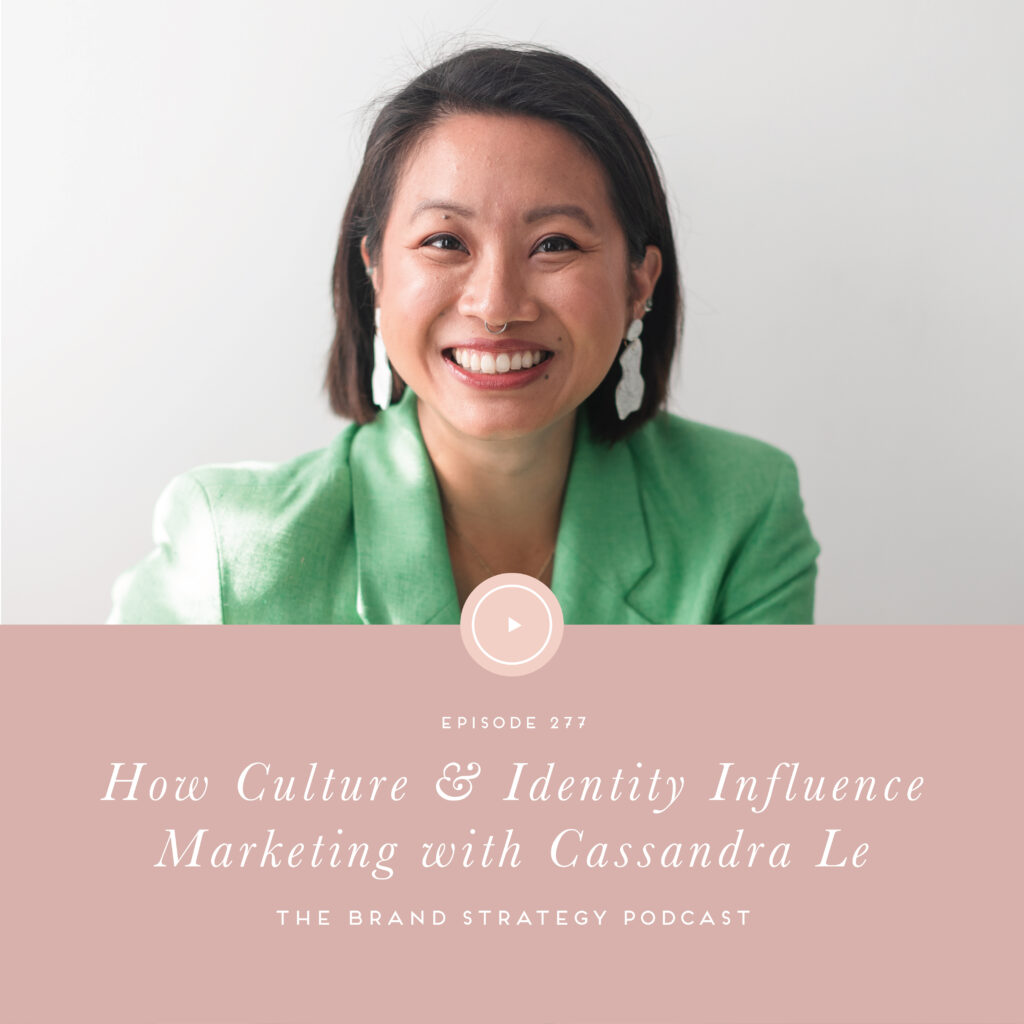
How Culture and Identity Influence Marketing
In today’s episode of the podcast, I’m joined by the talented Cassandra Le to discuss how culture and identity influence our marketing as creatives, entrepreneurs, and small business owners. In this fun conversation, Cassandra and I explore what “culture” really means in the context of your marketing, how your personal identity has a place in your message, and what marketing lessons we can learn from movie trailers and the Barbie film!
If you’ve been wondering how to weave more of your values and lived experiences into your brand and messaging, then today’s episode may be just what you’re looking for, friend.
Tune in for the full episode above!
MEET CASSANDRA LE
Cassandra Le (she/they) is a first-generation Vietnamese-American, immigrant living in Spain. They work as a Brand Strategist & Marketing Consultant and believe business and marketing can be fun AND be used as tools to dismantle systems of oppression.
For 10+ years, Cassandra has been creating content across all mediums (written, graphics, audio, video, photo, etc.), and through her business, The Quirky Pineapple Studio, she’s worked with mission-driven brands and thought leaders around the world in English and Spanish – helping them share their story, connect with their community, and drive sales with content marketing that is enjoyable and anti-oppressive.
When she’s not working, you can find Cassandra recording podcast episodes for her podcast, I’m lost, so what?, looking for the best bubble tea spot, and watching movie trailers on YouTube to movies she probably won’t ever watch in real life.
CONNECT WITH CASSANDRA and The Quirky Pineapple Studio
Website: https://thequirkypineapple.com/
Podcast: https://imlostsowhat.podbean.com/
Business IG: https://www.instagram.com/thequirkypineapplestudio/
Personal IG: https://www.instagram.com/cassandratle/
LinkedIn: https://www.linkedin.com/in/cassandra-le/
Marketing Hot Takes Email Series
Marketing Hot Takes ️is a weekly email series for overlooked Thought Leaders & Personal Brands to shift their perspective on marketing and branding, so they get booked for more industry opportunities. Always with a culturally competent, intersectional feminist, and liberatory lens – not that manipulative marketing!
YOU MIGHT ALSO LIKE…
Ditching one-size-fits-all marketing
Using people-led marketing to generate leads
The power of storytelling in your marketing
FOLLOW ALONG
LIKE THE SHOW?
IN ORDER TO PROVIDE CONTENT YOU LOVE I WANT TO HEAR FROM YOU! SUBSCRIBE TO THE BRAND STRATEGY PODCAST AND LEAVE A 5-STAR REVIEW HERE. THE MORE REVIEWS, THE MORE I’M ABLE TO PROVIDE THIS FREE-ACTIONABLE CONTENT!
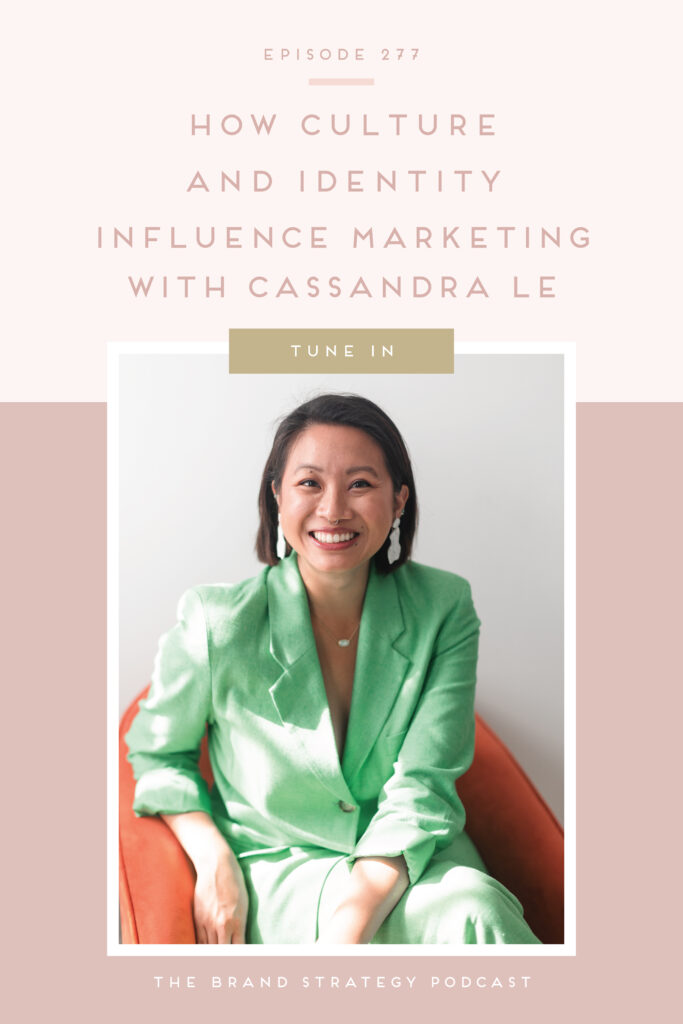
REVIEW THE TRANSCRIPT:
Please note this transcript has been auto generated and may contain typos.
Bonnie (00:07):
Hi, friend, and welcome to the Brand Strategy Podcast, a show created to equip you with the inspiration, encouragement, and clarity you need to build a brand of your dreams. I’m your host, Bonnie Bakhtiari, brand designer, strategist, and founder of the Illume Retreat. From Sustainable Strategy to heartfelt Encouragement. Each episode is designed to equip you with the tools you need to chase after your dreams, because you deserve a brand that empowers you to do what you love, connects with your dream clients, and offers a deep sense of fulfillment along the way. So grab a cup of coffee and join me on this journey, won’t you,
Bonnie (00:47):
Friends, Welcome back to the Brand Strategy podcast, where today we’re talking about how culture and identity influence our marketing with the incredible Cassandra Lee, I’m so excited to be introducing you to Cassandra, who is a first generation Vietnamese American immigrant living in Spain. They work as a brand strategist and a marketing consultant, and believe business and marketing can be fun and be used as tools to dismantle systems of oppression. Now, you might know Cassandra through her business, the quirky Pineapple Studio, or through her podcast titled, I’m Lost, so What? But regardless, I’m so excited to be having this conversation with her today about that intersection of culture and identity and how that shows up in our marketing, and it’s a joy to be able to share this conversation with those tuning in today. So, Cassandra, thanks so much for joining me. I’m so excited to get to chat with you today.
Cassandra (01:43):
Hey, Bonnie, I am super excited to be here and honestly, listening to you share that I was like, wow, that sounds good, .
Bonnie (01:53):
I mean, honestly, uh, you’re so talented and, um, just knowing like how you have leveraged your experience over the last, it’s over a decade, right? You’ve, you’ve been, you know Yeah. Losing all of this experience to, um, to grow your businesses and now your podcast. And so it’s not hard to make you sound good .
Cassandra (02:16):
I was thinking about like your voice though, because I was listening and I was like, wow, this sounds super nice, Oh, wow. I mean, my bio was great too, but also I loved listening to your voice. I was like, wow, this sounds like, like a radio.
Bonnie (02:30):
Wow. Thank you. I’m genuinely honored. . Yeah, just over here talking . Um, well, I know, I, I feel a little, a little spoiled, like I’m cheating a little bit because you and I have spoken before and we’ve, you know, taken the time to get to know each other. So I know a little bit about you and the incredible work that you do, but, um, for those tuning in, are you comfortable sharing a little bit more about who you are and the work that you do?
Cassandra (02:57):
Yeah, of course. So, hey everyone, I am super excited to be here. Uh, like Bonnie shared, my name’s Cassandra, and originally I am from Virginia, specifically Northern Virginia. Uh, and now I have been in Spain for seven, eight-ish years collectively. And I run a business called the Quirky Pineapple Studio, which actually we just went through a mini rebrand. Uh, previously we were a brand strategy and copywriting studio. And after lots of self-reflection and all the things that go into branding work, um, we have now pivoted to be a creative marketing and media agency. So I’m really excited about that. And then on the other side of all the things, um, I have a podcast, it’s called I’m Lost. So What, and on that podcast we explore, um, nuance conversations around belonging and what it’s like to carve your own path and identity as a multicultural person. And other than that, um, fun facts. I’m a Pisces Sun, uh, Virgo Moon Cancer Rising . Um, and I very weird fact, um, is I watch a lot of movie trailers on YouTube, um, to movies that I actually will never watch in real life.
Bonnie (04:23):
Ooh. Yeah. That’s so fascinating. What is it about, what’s it about the trailers that like kind of captures your interest?
Cassandra (04:31):
I am always looking for trailers who kind of like share stories. Um, I don’t know if like how often you watch movie trailers and maybe the people who are listening, they’re like, I don’t watch movie trailers that often . Um, but I, I’ve seen that like back in the day, movie trailers didn’t share the whole movie mm-hmm. and they kind of, you know, give you bits and pieces to pique your interest and basically get you into the movie theater theater to watch the movie. Yeah. Um, and then I don’t know what happened, but maybe like a few ish years ago, um, trailers started basically just showing you everything in the story. Yeah. Especially if it’s like an action movie, I think mm-hmm. . Um, and then now they’re kind of tr like, changing again, this is like not scientifically proven, y’all, um, this is just like my observation, so I could be wrong. Um, but now I feel like they’re trying to get better at sharing stories. So I always like watching the trailers just to see what people share, what parts they highlight, and then kind of to see if like any good movies are coming out. But I actually wouldn’t go to the movies to watch them. Mm-hmm. , I don’t know. It’s very interesting.
Bonnie (05:48):
No, that makes sense though. And I am, I’m over here like emphatically nodding my head because I’ve noticed that as well where, you know, trailers like, and this might be, you know, kind of like dating myself, but I feel like back in the, back in the nineties, back in the early aughts trailers had voiceovers as well, and so you have this like movie voice guy being like, you know, in this story, this is what’s happening, you know, and you know, like guiding you through the whole kind of, you know, studying the scene. And, um, but you’re right. Like they were kind of like, I feel like they were shorter and a little bit punchier. Yes. And now, and I wonder if it’s because we have trailers for everything, right? Like there are trailers for shows as well as trailers Yeah. For movies. And so I wonder if it’s just like, you know, people have, maybe it’s a consumer behavior thing where we’ve gotten used to consuming that type of content in a certain way. And so then, um, studios are thinking, oh, well, let’s just kind of stick with a format that people are used to. And again, this is absolutely not scientific. Like, this is me just completely making a wild guess , so Yeah. Could be totally wrong. Um, but yeah, I’m, I’m kind of curious, like now I wanna, now I wanna like talk to someone in cinema photography. I know
Cassandra (07:07):
Some told
Bonnie (07:08):
Media degree .
Cassandra (07:09):
I know. That’s how I feel because sometimes I, I have noticed that we have more trailers for series, um, especially now with so many streaming mm-hmm. , um, services. But yeah, I, I feel like they’ve changed a lot and now they’re kind of getting better punchier, like you said, there’s still no voiceover, but it’s definitely like punchier and it like, brings you into the story instead of kind of spilling out the whole thing.
Bonnie (07:38):
Yeah. Well, with like a trailer, they, they’re, they, they like kind of guide you through the entire story at the end of it. I’m like, well, I have, I know, watched just watch the very condensed version of that, of that movie. Like, why would I spend my money to go ?
Cassandra (07:52):
Exactly.
Bonnie (07:54):
Um, I I think it’s kind of interesting, right? Like I, um, I know like this summer was absolutely Barbie girl summer, and so we saw all of the marketing that the Barbie team was doing, and I feel like their trailer was so different in the sense of we knew very little about what that story would be and what kind of journey Barbie and her friends would be going on. And I think that that’s one of the reasons, um, well, I mean, there’s so many reasons why , why that film was so successful at the box office, but I think that, you know, kind of having a little bit of mystery and mis and like kind of intrigue actually worked. Like I know I personally was like, Ooh, I’m curious. Like I don’t actually have a ton of expectations going into this. Mm.
Cassandra (08:41):
Yeah. I feel like I watched because now I believe this is what I see on YouTube. So again, not scientifically proven, but I think movies have like two or three trailers now mm-hmm. each, um, and I watched all of, of the Barbie trailers and none of them were like, anything that the movie actually talked about. Mm-hmm. , I feel like I watched a few and I was like, oh, wow, I have no idea what this movie’s gonna be about .
Bonnie (09:09):
But I feel like that was so intentional and Yeah. In a weird way, this kind of like, like segues into what we’re talking about today Yeah. Is, is we have, you know, we as business owners have so much agency over our marketing and the messaging that we use and the way that we, um, kind of invite people to, to connect with our, our mission and our values and the why behind our work. And like in the Barbie film, same kind of thing where they very, I think that was very strategic on their part where they created kind of some of that curiosity and some of that mystery to get you, um, thinking about the film and, you know, going to your movie theater to actually check it out. And then once you’re in that seat, then they kind of surprise you with Oh, yeah. With the actual story.
Cassandra (09:56):
Yes. I, I feel like that too. And I mean, talking about like, the culture around marketing, um, and also the culture of Barbie. Um, I think they played really well into pop culture and then also I think nostalgia culture mm-hmm. Um, for their marketing. I mean, when we were talking about the movie trailers, the movie trailers I think had almost like Easter eggs that touched on, um, history of Barbie mm-hmm. . And then when we’re thinking about like, a lot of the marketing that they did, uh, in like normal life, um, it really touched on one pop culture in general, and then also to a lot of like, nostalgia for the people in like eighties, nineties who played with Barbie, or they wanted to bring back like the two thousands, uh, fashion mm-hmm. Because Barbie did a lot of, um, collaborations with other brands, and it had like a whole two thousands nineties vibe, I think.
Bonnie (11:03):
Yeah. No, I would agree. And I, I think that there was, there’s so many layers to that marketing campaign, and I, it was really fun over the summer. It was really fun for me to like, watch that unfold because I felt like in a way I was like watching marketing history being made . Yes.
Cassandra (11:22):
Same. I was like, wow, this is like topnotch.
Bonnie (11:26):
Yeah, absolutely. Now I know that, you know, like I, I can only speak for myself, but I know that I do not have the budget of Warner Brothers Studios, and I do not have the, like, the, the like human power of the entire, you know, like series of teams and departments that were like marketing the Barbie movie. But, um, for, for, you know, those of us who are, uh, one person teams or are entrepreneurs, solopreneurs, how, how can we start to think about culture and identity coming into our marketing? Like what, what could that process look like for us on, on a much, much smaller scale, do you think?
Cassandra (12:05):
Yeah, that’s a great question. Um, I wish I also had the budget, like Warner Brothers. Um, don’t
Bonnie (12:10):
We all
Cassandra (12:11):
, but one day? Um, but on a smaller scale, I do think it actually, especially for the people who are like, uh, solopreneurs or if they have a personal brand, um, it’s really digging deeper into who you are. Um, but not just like quirks and personality, but really understanding, I’m gonna use the word culture to describe culture. So this is a little bit cheating, but, um, really understanding your culture. And when I say culture, this is something that I actually learned from one of our clients who is a cultural intelligence expert. Um, culture is not just like where you’re from. So previously you introduced me as Cassandra, um, and that I am Vietnamese American, but I also live in Spain. So just saying that you all might already have like a sense of like the culture that I was raised in. Um, but there’s a lot of different factors to culture.
Cassandra (13:15):
It could be, uh, your values, it could be, um, things that are taboo to you. It could, um, yes, where you’re from or your nationality, it could also be your ethnicity and it could be more like the, the rules that you play by. And on top of that is just like your individual identity of like who you are as a person. And all of that I think really influences our marketing, um, more than we realize, especially as small business owners because we’re so direct, I think, to the market. Um, and like, people are basically seeing us do the thing and create the stuff. So, yeah. I don’t know if that answers your question. I hope it did. .
Bonnie (14:05):
No, no, I, I definitely think it did. And I, I find that that kind of deeper, broader explanation of what culture is so enlightening and so helpful. Um, it, it really opens it up to encompass all of these parts of your lived experience, not just your geographic location or your ethnicity or your, you know, family history. Um, you know, obviously those things are so valuable and are a part of it, but, uh, I really like that we can look at ourselves and we can also then look at others with, with kind of that full, like, there’s this level of, of kind of this concept of M multifacetedness. Yeah. That is so beautiful to me.
Cassandra (14:49):
Yeah. I really do think, like, when we start looking at marketing through that lens, um, it, it takes it deeper than kind of what a lot of folks teach, which is what me and my other, uh, marketing friend Monica Schrock, uh, we call it census marketing. And census marketing would be things like, what’s their age range? Where do they go shopping, um, what’s their household income, where do they live? What’s their gender? Uh, those are all things yes, that are important. But I also feel like those really apply if you wanna start doing ads, but not necessarily if you’re just creating a lot of content or maybe you’re going to networking events. So this, I think the lens of looking at culture and identity through marketing looks at your ideal clients through a more holistic, and like you were saying, multifaceted lens. Like this human has lots of layers.
Cassandra (15:51):
Um, and if they have lots of layers and identities, yes, maybe I can pinpoint that they’re in the age range of 25 to 35, but then 25 to 35 year olds don’t all have like the same culture or the same values. So what is the thing that like connects them all? What is the thing that they’re looking for? Or what is the thing that they like wholeheartedly believe? And that is where I think our marketing could become even more powerful. Um, not just a sell, but like to actually create like that connection to the brand.
Bonnie (16:30):
Yeah. That makes all of the sense to me. And I love how when we take that approach with our marketing, we are connecting with people on a more human level, and we’re treating them as the unique individuals that they are versus, you know, these kind of, I don’t know, sometimes when you think about those questions that, like you and Monica call census marketing, those kinds of questions, it can be easy to, to generalize people and kind of put them in these like big buckets of, oh, they’re in this age range. Yeah. Or they make this much money a year, they have these kinds of jobs and not discounting the value of knowing that information about your ideal client, but when you are putting more of a, a face to the name or you, you are getting to think about people on more of an individual level. I personally think that it makes marketing a little less intimidating because it’s more about connecting with individual people versus trying to go viral or trying to, you know, like you’re maybe mentioning earlier, create these, um, these scalable ad campaigns that are meant to reach people on like these, you know, crazy high like, you know, levels.
Cassandra (17:49):
Yeah, totally. I feel like it, it makes it l less intimidating and yeah, like you were saying, it brings it down a notch to, okay, I’m gonna create like this avatar, and instead it’s like, oh, I’m gonna actually get to know this real human being that actually gonna buy either my services or my products or my programs or courses or whatever it is.
Bonnie (18:12):
I love that. So what does this process look like for you in your own marketing, if you’re comfortable sharing a little kind of maybe a high ver high level version of that, or kinda a little few snippets of, of how you’ve approached this for your own business?
Cassandra (18:25):
Yeah, so I have, um, a framework, it’s called the quirky Octopus Methodology, . Um, so imagine like an octopus. Um, and the way like we do it with our clients is, um, there’s the head of the octopus, the tentacles, and then the, well, I think you’re actually supposed to call them legs. So the tentacles, legs, um, it’s okay. I
Bonnie (18:52):
Won’t tell anyone. .
Cassandra (18:53):
Yeah, I, I read it in a, an octopus article actually. They were like, don’t call them tentacles, they’re actually legs. Okay. . And then each leg has, um, suckers, right? Mm-hmm. , mm-hmm. . So imagine the head is your business and your brand. And then the legs can represent different things depending on, like, if we’re talking about just brand business or if we wanna talk marketing. So I guess we can use the legs as a, for the marketing. So the head is your brand business, the legs are each of your marketing channels. So one leg could be Instagram, one leg could be newsletters, one leg could be referrals, another leg could be networking. Um, and then the suckers are, if we are talking about content, um, a post on Instagram, or maybe if we’re talking about referrals, it is asking a current client if you could, if they could, um, recommend you to someone.
Cassandra (19:56):
Or if it’s a networking leg, then one sucker could be following up with five people that you connected with at a, um, mark or networking event. Um, and once we have that, I don’t know, that’s quite visual, um, , then technically the legs are putting the suckers and like kind of feeling the suckers around, uh, so that it catches food and then it brings it to feed the, the head mouth of the octopus. So if you think about it like that, like, okay, if all of the legs are, you know, marketing platforms or anything like that, then all of these little suckers are basically things that you do to get clients or to build your brand or to build your business. It doesn’t have to be clients all the time. Um, and then because of that, it feeds your business basically. Um, yeah, I, can you imagine it Bonnie
Bonnie (20:55):
? Yes, I can. Okay. I’m like, I’ve got this cute little octopus in my head who’s like all smiley and yes, they’ve got these cute little legs and yeah, I can absolutely see it. .
Cassandra (21:05):
Yes. So , so that’s like the like methodology framework. And then within that we break it down to, um, like your personal, which would be about your brand or your business, or if you have a personal brand about you, so then your culture, your stories, lived, experiences, accomplishments, strengths, weaknesses, um, then we would take it to your personality. So how this, how you basically communicate all of that to people. Um, then we go through people, so who are actually your ideal clients? And yes, we look at it through the census marketing. Um, and then we also think about, okay, what are their culture cultures? Uh, what are their identities? What are like some of the stories or beliefs they have around your service, uh, or your product? And then we, once we know all of that, then we can actually talk about the legs part of the octopus, which is the platform, which platform makes the most sense for you and the type of marketing that you wanna do, or the marketing that feels best for you, sustain, like the most sustainable, the most viable, all of that stuff.
Bonnie (22:17):
That’s absolutely like, incredible. I love how thorough that process is. I love that you have that kind of visual aid of the occup and you make it so interactive where, you know, there’s so many layers. I was just listening to all of the different facets of that process that you walk your clients through, and then, you know, the, even when you get to who their people are, all the questions, all the, you know, things that you think through having it formulated and kind of structured in a way, like, you know, with the octopus where it’s cohesive and it all works together and it’s this living, breathing entity that they can like, you know, identify and nurture and care for and like pour energy into, and then it directly pours back into their business. I, I think that’s brilliant.
Cassandra (23:11):
Yeah. I love the octopus example mainly because, um, when I was teaching like marketing to people, um, it was really hard to like conceptualize like how big your brand could actually be mm-hmm. . And then also how, you know, when you’re in, in the thick of it, like you’re kind of just doing all the things day to day. And, you know, sometimes we don’t see the impact of, okay, I’m gonna work on this email, I’m gonna send it out, or I’m gonna, you know, stay consistent and send out, uh, four emails this month. Um, sometimes we’re just kind of like, oh, this doesn’t, like, do anything. My marketing’s not working. Um, and all of that stuff. But I think when, at least when we do it with our clients with like the octopus, it kind of makes it more real because they’re like, oh, okay, if I don’t do it, um, but I know that it works for me. Sending emails this leg of the octopus doesn’t do anything. Like, it’s just kind of sitting there .
Bonnie (24:22):
No, I, exactly. I can exactly picture that and I know what you’re talking about. I, I just, I love that. And, you know, for those who are tuning in, um, I, I highly recommend like, if you need to like go back and listen to everything that Cassandra was walking you through, because she maps out, like step-by-step questions to think about and concepts to consider for who your people are and how you can connect with them. And I just, yeah, I’m, I’m such a fan of that concept, and it, you’re right. I think that having some ways to take these, these things that are so important, but also they can seem a little like arbitrary. Yeah. And it’s hard to see how it makes sense. Like, I feel like, um, a lot of, a lot of aspects of brand strategy can feel that way. Yes. Yes.
Bonnie (25:12):
I, it’s why I, yeah, right. It’s like with, with, you know, the visuals and, you know, the identity components of a brand, it’s, we can see that. And so it’s so easy for us to think in our head, oh, branding equals, you know, logo, uh, you know, marks website, colors, fonts, all those things. But, um, you know, it’s, it’s some of those, those more strategy-based concepts like messaging and marketing as well, that, that are just as important and impact your business’s ability to thrive in the long run. So Yeah. I love that you’re making it easy for folks. .
Cassandra (25:46):
Yeah, for sure.
Bonnie (25:48):
. Well, okay. Knowing that you work with people who are, um, you know, kind of at different levels of awareness when it comes to their own marketing and how culture and identity plays into that. Are there any like, initial steps that you’d want to recommend to those who are tuning in today about, you know, okay, like if you’re just getting started with thinking about weaving in your culture and your identity into your marketing, are there some, uh, you know, initial starting points that you think are helpful to get in the right mindset and take action?
Cassandra (26:23):
Yeah, definitely. Uh, so this applies even if like, larger businesses, smaller businesses, solopreneurs, I think, um, writing out your values, um, and then not just writing them out, but actually defining them is super important, especially around the culture piece. So I’ll share culture first, and then I’ll go into identity. Mm-hmm. . Um, a lot of the times I see, uh, people talk about like, oh, these are my core values. And sometimes we see them on websites or sometimes they share them on like social media or things like that. Um, but something that I also see is that, let’s say somebody’s value is communication. Um, a lot of the times I just see people say communication, which is great. Um, but if you were to define it, then that takes it one step further because now we know what communication means in your brand and your business, and how you basically embody that value when you’re interacting with clients.
Cassandra (27:32):
It could be your team, it could be like collaborators, it could be your audience or your community. So I would say def like figuring out what your values are for the brand and the business, um, and then defining what those values actually look like. Um, another thing I like to do is just to write the values in i n g form. Um, I think in English, like grammar mm-hmm. , it’s called a Jaron . Um, so i n g format is like, instead of saying communication, it would be, uh, communicating with kindness, for example. Mm-hmm. And that already gives me a more clear vision into like the culture, what, like what you value as a, like a business brand. And then once you define it, um, you could say like, communicating with kindness looks like, um, having difficult, uh, conversations, but for the betterment of the work that we do.
Cassandra (28:32):
And now that is so much easier to understand as somebody who might want to work with you, or, uh, maybe I want to be part of your team, or maybe I just love supporting your brand. Um, I can actually say, oh yeah, this is like how they act. Like this is how they truly embody this value so that the culture looks like this. So that’s one thing. Um, and then for identity, this is more of like a personal exercise, but I would say maybe just sit down and write down all of your accomplishments and achievements. And I’m not talking like business professional accomplishments or achievements. It could be personal stuff. Um, like let’s say for example, I could say, oh yeah, I started my business six years ago. Uh, that is like an accomplishment. And then I can also say, um, I learned to argue in Spanish, that’s another one. Or I built in time for rest, that could be another one. And all of that I think actually shows you a lot more about one, your culture, like what you value, and then also who you are outside of like, accomplishments, titles, achievements, and all of that stuff. It’s like gives you the both end of, Hey, I not only bring in expertise in my skillset, but I also bring in all of these pieces of lived experience that make like my work that much richer.
Bonnie (30:07):
Mm. I love that. And I think there’s so much value in looking at ourselves as holistic people, not just as, you know, super incredible professionals. Yeah. ,
Cassandra (30:20):
Which is, I mean, we could all be super incredible professionals too, but
Bonnie (30:24):
Yes.
Cassandra (30:25):
Also there are, like you said in the beginning, like, we’re multifaceted and have so many layers. Why forget all of the other parts of this?
Bonnie (30:34):
I think that sometimes I, this is something that I see more in newer businesses and with newer business owners where it can, and you know, this is not all people, but some people fall into this kind of mindset trap of believing that only their professional experience or their professional, like, you know, accolades or anything like that apply to this new business that they’re starting. But I always encourage people in that season, like, look at what you’ve done for yourself and look at the way that you’ve utilized these skills and these talents and these, you know, all of these incredible things that you have and that you can do. And that maybe you are look at that when you’re thinking about how you can infuse more of your values and more of what makes you different and what makes you unique into this brand that you’re building. And I think that that, that opens us up more to look at who we are holistically as a multifaceted human versus believing that only our, you know, professional awards or, you know, these professional accomplishments apply to these businesses that we’re building because, you know, we’re humans first and foremost.
Cassandra (31:51):
Yeah, definitely. I see that a lot too. And I feel like, you know, whenever we’re entering, ’cause I remember like just in the beginning of this, I said that like, we were making that brand like mini rebrand pivot, um, from being a brand strategy to and con copywriting studio to creative marketing and media. Um, I was really scared to do it. And I definitely also kind of went through like the same thing of, oh, like my professional experience, I don’t really have like that to be calling the Gorge Pineapple Studio, like a true media agency. Um, and then I, you know, I went through like this imposter syndrome and I just kept thinking, oh, maybe I should, should, um, invest in education, which is I could do that too. Um, but then I started kind of like researching different types of media agencies and like what they do, and maybe I could be wrong.
Cassandra (32:55):
So if I am, oh, well, I accidentally rebranded myself to something not correct. But, um, , what I did see though was that, uh, a lot of the media agencies were creating, like, they were basically producing content for, uh, people and their clients. And when I started looking back at my like, lived experience, yes. I never went to like cinema production, um, school or anything like that. I, I never really learned how to make movies or like be a director. But I have been creating content since I was 13 years old. And since then, I’ve basically experimented with all different forms of content. I know, like the workflows and the processes to produce content. So that is actually maybe where our specialty lies, not just only in like content production and maybe I’m not like the best creative director and all of that stuff, but I’ve got like everything organized down to a t I know how to build out your marketing systems to support all the content that you want to create that I think is just as valid as if I were to get like, maybe a degree in creative direction or like cinematography or something like that.
Cassandra (34:14):
Um, so yeah, I, I do feel like when we look at our lived experiences, it opens up so many opportunities for us. Um, and also it adds in an extra layer of maybe experience that somebody technically trained might not know because we were kind of scrappy with it. Mm-hmm. And we picked up like some tricks that somebody who was technically trained might know, like shortcuts, but we got to the shortcut a whole different way. So we know like, oh yeah, this, this and this, that maybe somebody else might not.
Bonnie (34:45):
Yeah, absolutely. I find that that’s absolutely valid. Like having that lived experience, being self-taught, I think that there’s so much value in that experience and those set of experiences, you know, not that one way is necessarily better than the other. I think that both have their merits, but both are a different fit for other people. You know, like I don’t have, I’m actually a self-taught designer, and so I did not go to school for graphic design. Um, I went to school for journalism with an emphasis in print media. Oh, wow. So, yeah. Yeah. So it’s, it’s, it’s all that to say, um, you know, the 11 years that I’ve been building visual brands and brand strategies for my clients, I’ve learned a thing or two that, you know, maybe I would’ve already known if I had gone in, uh, you know, with a, with a fine art degree.
Bonnie (35:43):
But, you know, I, I sit down and I talk with my friends who did go to art school and who do have degrees in design and they’re, they’re, you know, kind of lamenting all of the things that they didn’t learn that they’re having to figure out for themselves because that degree didn’t prepare them for running a design studio Yeah. Or running a branding agency. And so I think that it’s, it’s so powerful when we can own the validity and the potential of our own stories, regardless of, you know, how we got there and hearing you talk about all of the expertise that you’re bringing into this new direction for the quirky Pineapple Studio. It’s, I get really excited for you because I can see how much value you’re going to be providing to every single client that you work with through, you know, all of the expertise that you have. So I, I love that you made that distinction of, of you know, what going your own path and kind of going and kind of exploring from that perspective, that lens of being self-taught. There’s Yeah. Huge amounts of value there.
Cassandra (36:54):
Yeah. Thank you. I’m excited. We’ll see how it goes. The mini rebrand, I mean, recording this, I think just launched the beginning of this month. Um, but I’m excited for all of the other things that we have coming out through the brand. We’re actually producing a lot of our own content. I mean, we were producing a lot of content before, but now we’ve got like fun series and stuff that we have going on
Bonnie (37:17):
That is so exciting. I love that. For you, um, with thinking about this, this concept of incorporating culture and identity, you know, at at, at this point in the conversation, we can see how we’re just starting to scratch the surface of how multifaceted and layered this concept can be. But as a final piece of advice or encouragement to those who are tuning in today, what would you want them to really remember when it comes to taking that action to weave culture and identity into their marketing?
Cassandra (37:54):
Hmm. So aside from all of the things that I mentioned before, I do think, uh, something to be mindful of it and conscious about is that there, like, yes, we can get into values and culture and identity and also, um, if we think about things on a systemic level, that there are things like dominant culture that basically, what is the word? I don’t wanna say guides. ’cause it’s not really guide, um, dominant culture that basically controls the narrative mm-hmm. Of how we sell or how we market. And also marketing, I think is like a really great tool Yes. To sell and yes, to grow your brand awareness and all of that stuff. But it also is a thing that controls, um, cultural narrative as well. So when we are digging into our own culture and identities, this is where I think we have to have like really honest conversations with ourselves that might be uncomfortable to realize like, Hey, I am part of dominant culture. And dominant culture is probably things like being able-bodied or being, um, a straight cis person or being white. Like all of that is actually dominant culture. Mm-hmm. . And if we aren’t aware of those things when we are creating our marketing and the narrative that our marketing is actually like playing into, then we actually could be causing more harm, uh, with our brand and our marketing than we realize. S Yeah. That I felt like it was a lot to take in .
Bonnie (39:48):
No, that was amazing. I feel like we could just like do a mic drop
Cassandra (39:52):
At the end,
Bonnie (39:52):
At the end of that episodes up. I, I love, I love that you shared that and that makes it possible for us to use our marketing and our businesses as tools for good. Yeah. And I think that yes, it’s uncomfortable to dive into that and to explore where for some of us that privilege exists mm-hmm. , but it gives us the opportunity on the other side of that, it gives us the opportunity to be creating a space that is inclusive Yeah. And is genuinely designed compassionately for the betterment of all people. Yeah. Not just people who have similar experiences to us, or look the way that we look or identify the way that we identify. So I really appreciate that you share that with us today. Yeah.
Cassandra (40:44):
It’s, it’s uncomfortable I will mm-hmm. say like, it’s uncomfortable to journal on it, it’s uncomfortable to accept it, and then it’s also uncomfortable to figure out what’s the new narrative that I wanna say with my marketing. And this is where I think if you tap into your identity and your stories and your experiences, um, you can create marketing that goes way, way deeper than, you know, whatever you see on Instagram that the gurus are saying, um, you get to actually create that human connection instead
Bonnie (41:18):
That’s so worthwhile. And I feel like what you are doing and the way that you are building your personal brand on Instagram and the way that you’re creating content and sharing content for the quirky Pineapple Studio, those are great examples of, you know, a little taste of what that might look like for folks. So where can people connect with you online if they wanna follow along and see what you’re doing?
Cassandra (41:44):
Yeah. So if you want to connect with me, uh, you can find me on Instagram at Cassandra t l e. And then, um, my podcast is, I’m Lost. So What, and you can find it on Apple, Spotify, all the places. Um, and then connecting with the business on Instagram, we are at the quirky Pineapple Studio. And then our website is the quirky pineapple.com.
Bonnie (42:10):
Amazing. And folks who are tuning in, as always, I’m gonna have all of those links in the show notes for today’s episode. So if you need to find all of this in one cohesive place, you can go to brand strategy podcast.com, click on the latest episode link, and you will be able to find everything you need and kinda a recap of our talking points and a transcript and all those good things in that place. Um, gosh, this has been such a great conversation. I feel like I’ve learned so much. It’s just been so fun to also then like, dive into things unexpected, like movie trailers Yeah. And the Barbie movie and just all this great stuff. So thank you so much for coming on the show, for sharing part of your story and your expertise with us in this way. It’s been amazing.
Cassandra (42:58):
Thank you, Bonnie. I know, I, I love talking about the movie Trailers and Barbie. Of course. I mean, that was a wonderful marketing campaign for everybody in the world, , uh, and also just chatting a a lot about this.
Bonnie (43:12):
I completely agree. Well, for those who’ve been tuning in today, thank you for your time. Thank you for joining us for another episode of the Brand Strategy podcast. And as always, I’m cheering y’all on from Waco.
Bonnie (43:31):
Thank you so much for joining me today. Friend. Before you go, I would be so grateful to receive your feedback on the Brand Strategy podcast. If you enjoyed this episode or the podcast and general has helped you grow your brand, I’d really appreciate it if you left us a review in iTunes. Your positive reviews enable the Brand Strategy podcast to continue to grow and reach like-minded creatives just like you. Thank you for all your support and encouragement as together we pursue building brands with purpose and intention. Until next time, I’m cheering you on from Waco.
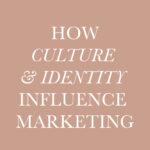

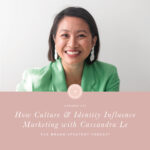
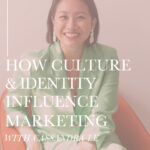
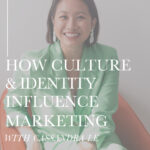
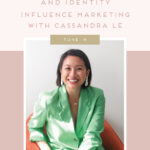
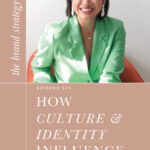
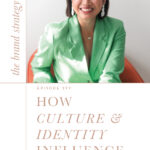
leave a comment